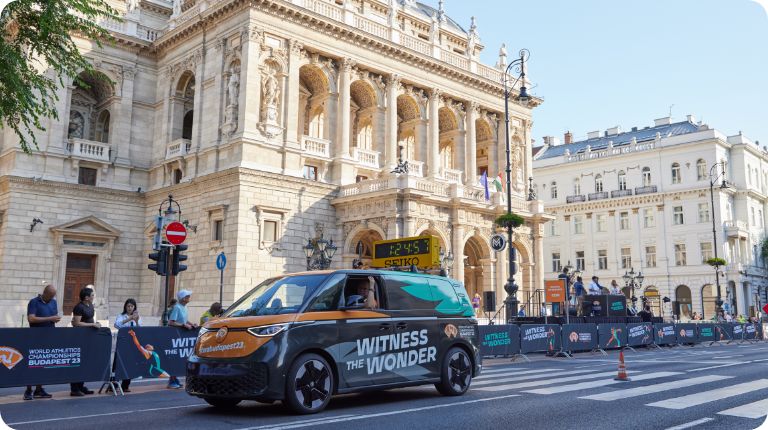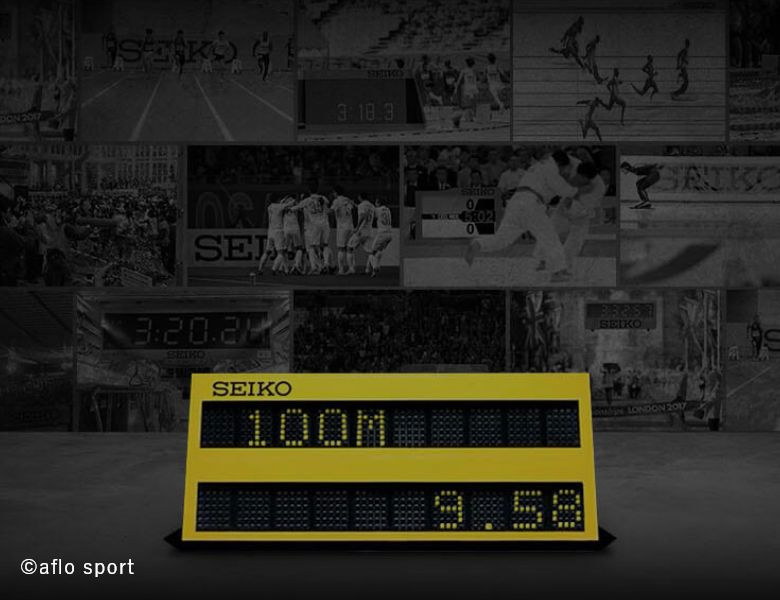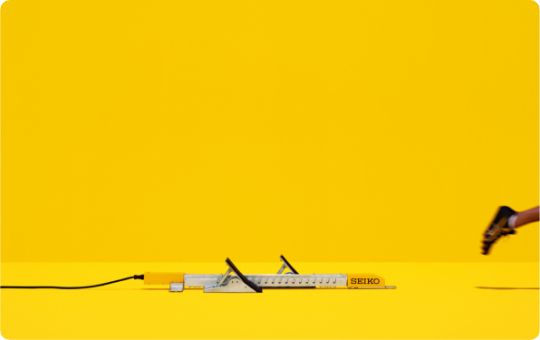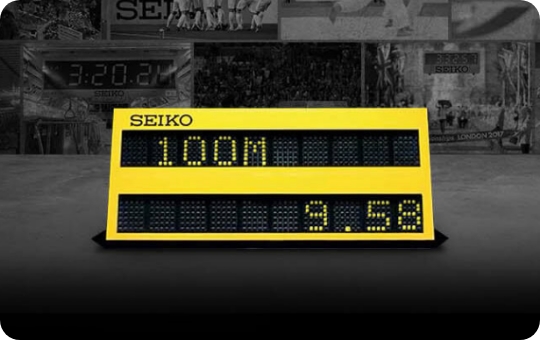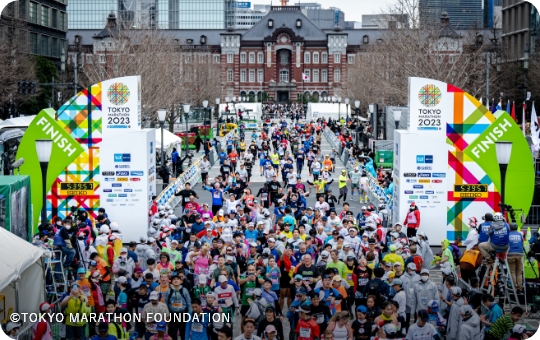Supporting sports with technology and experience
Since the 1964 Tokyo Olympics, Seiko has marked the moments in which new records have been set and history has been made, and moments that have touched the hearts of numerous people, through the development of cutting-edge technology and the dedication of our highly experienced timing team.
In recent years, we have been building an even deeper relationship with sports by providing support for athletes and encouragement for city runners.
Here we present some of the history of Seiko as a dedicated and understanding partner to those with real passion for sports, who strive to achieve their best times, showing our commitment to the corporate slogan of "Moving ahead. Touching hearts."
1964
-
Tokyo Olympics
First time acting as official timer for the Olympics
See details
1964 Tokyo Olympics
First time acting as official timer for the Olympics
During the period of post-war reconstruction and economic growth, Seiko staked its future on being the official timer for the Tokyo Olympics.
Despite having no prior experience in sports timing at that time, by developing revolutionary new stopwatches and other devices, Seiko was formally appointed as the official timer. Producing 1,278 individual timepieces and 36 types, and mobilizing 172 employees in total, Seiko supported the successful management of the Tokyo Olympics. Seiko's technical capabilities in producing miniature quartz timepieces and other devices became known to the world, allowing the company to expand product sales on a global scale as an international brand.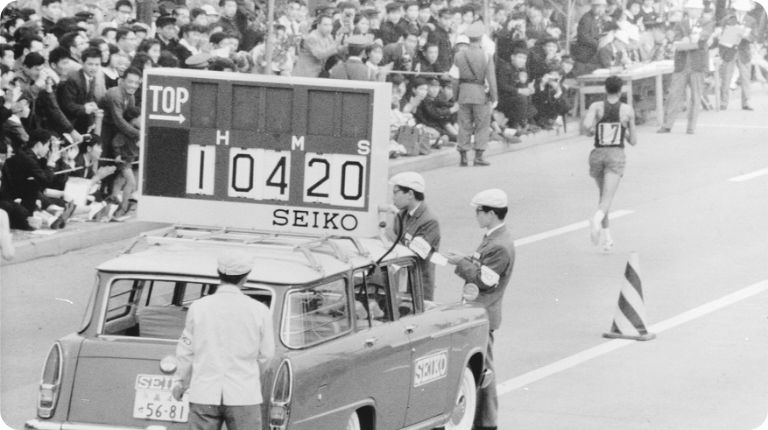
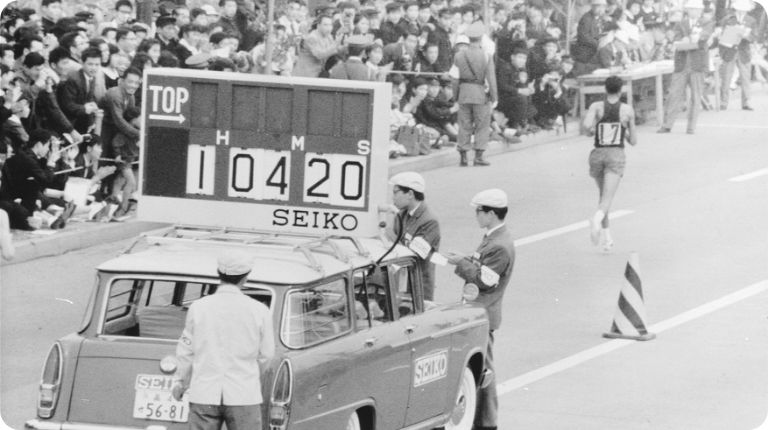


1970s
1972
-
Sapporo Olympics
First time acting as official timer for the Winter Olympics
See details
1972 Sapporo Olympics
First time acting as official timer for the Winter Olympics
After the Tokyo Olympics, Seiko began to also develop timepieces for winter events such as skiing and ice skating.
Implementing various improvements in areas such as size and weight reduction and cold resistance, Seiko strove to develop devices capable of measuring time with high accuracy even under harsh natural conditions such as snow, ice, and cold, in preparation for the Sapporo Olympics. Seiko implemented an infallible timing system, comprising dual or multi electronic timing with additional dual-system manual timing incorporated as a backup, and carried out the important duty of official timer for these Winter Olympics.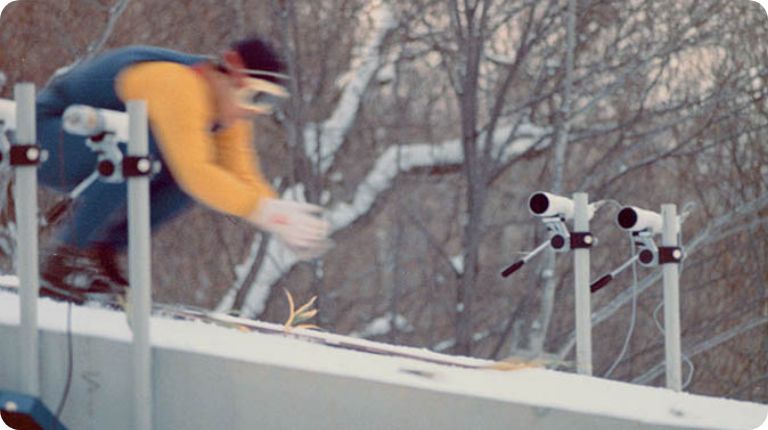
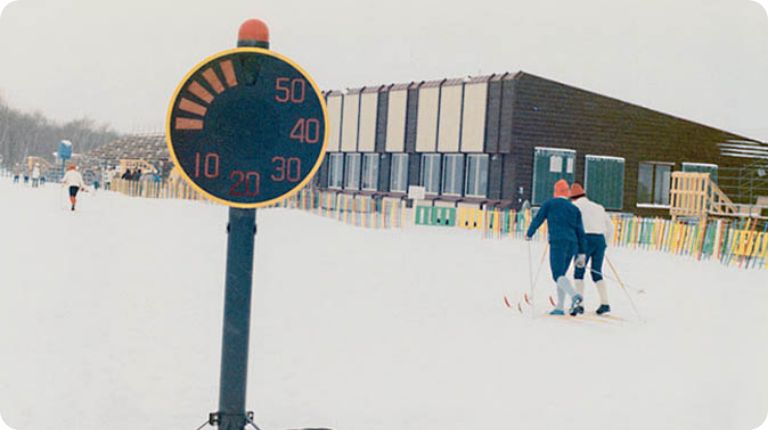
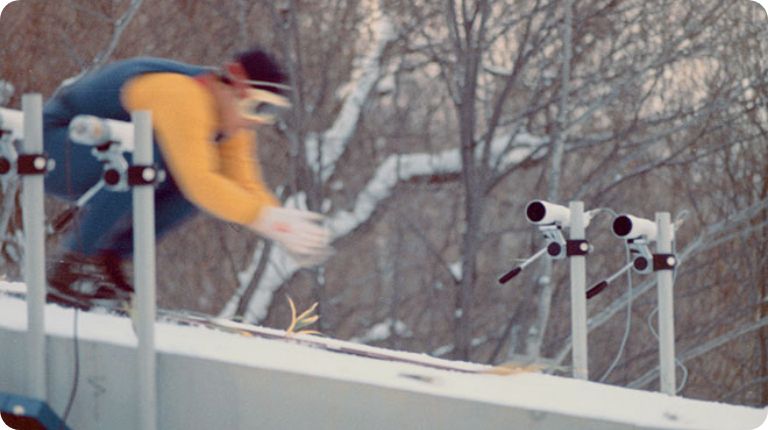
1978
Seiko World Super Tennis (1978-1995)
Soccer World Cup (1978, 1982, 1986, 1990)
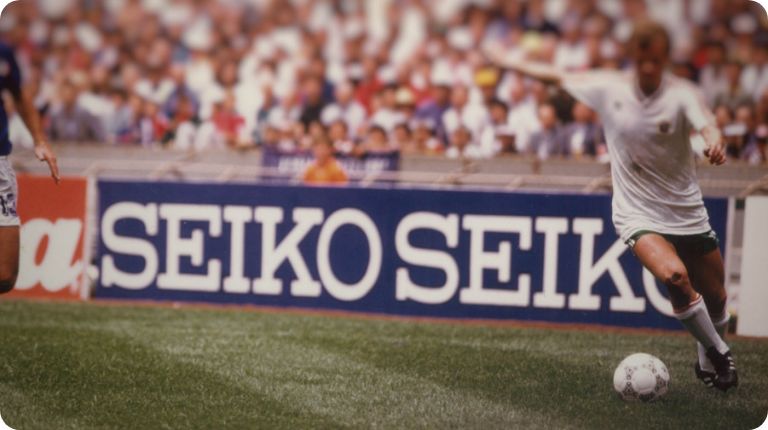
1979
-
NHK International Figure Skating Trophy (1979-present)


1980s
1980
-
French Open Tennis (1980-1991)
1981
-
Tokyo International Marathon (1981-2006, Tokyo Marathon from 2007 on)
1984
-
False Start Detection System
-
Nagoya International Women's Marathon (1984-present)
-
Pan Pacific Open Tennis Tournament (1984-present)
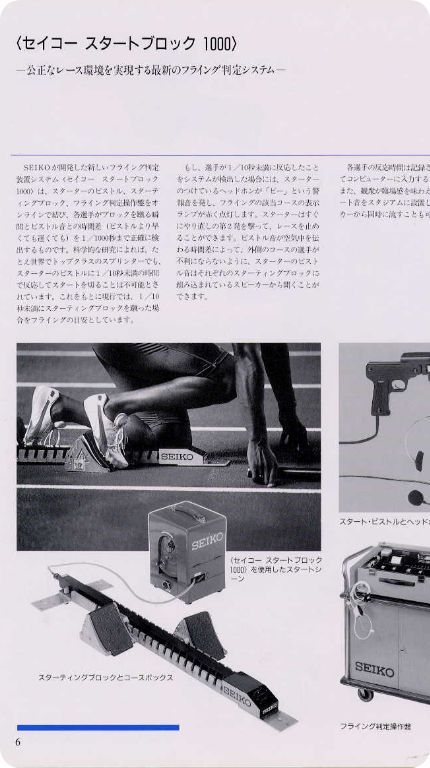
1985
-
World Athletics Partnership Contract (1985-present)
-
World Athletics Partnership Contract
The beginning of a history spanning over 30 years
See details
1985 World Athletics Partnership Contract
The beginning of a history spanning over 30 years
Seiko has had a partnership contract with the World Athletics (former IAAF) since 1985, and has overseen timing at more than 180 World Athletics competitions. The World Athletics Championships is considered the greatest athletics competition in the world, and since the 2nd World Championships held in Rome in 1987, Seiko has been the official timer for 16 consecutive championships. Through this close collaboration with World Athletics, Seiko has marked many incredible moments at numerous international competitions for over 30 years, earning the trust of the World Athletics, athletes and spectators alike.
World Athletics Championships
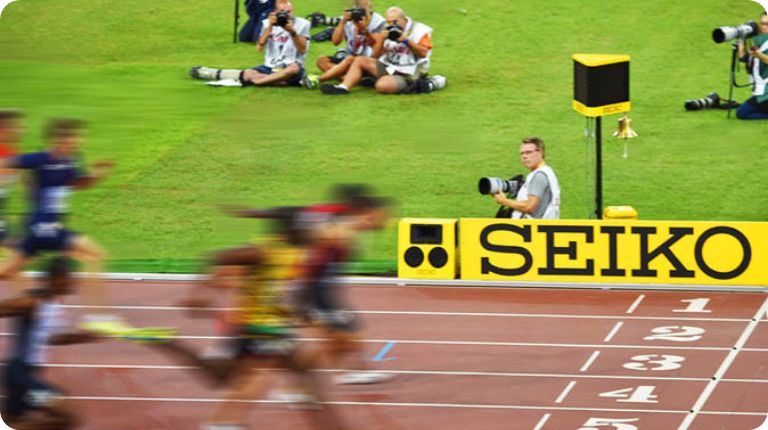
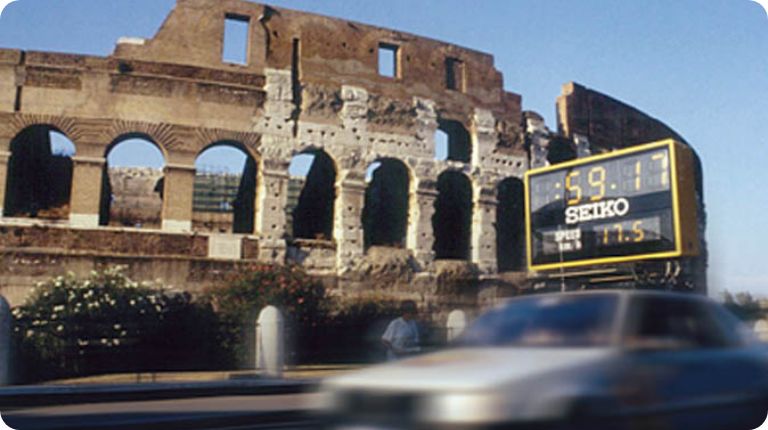
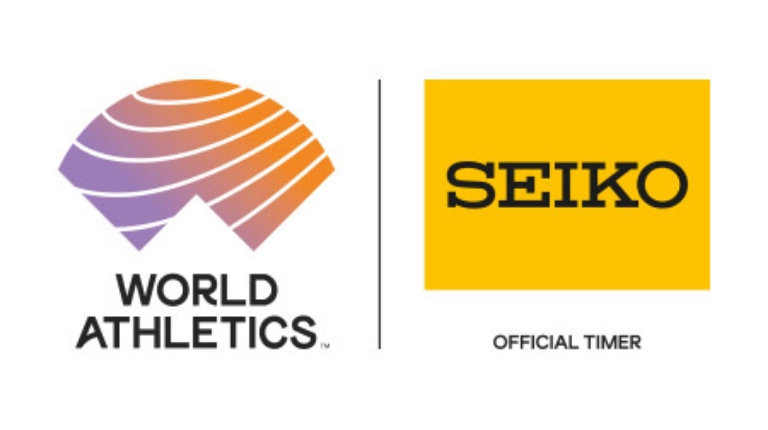
1987
-
Electronic Distance Measurement (EDM)
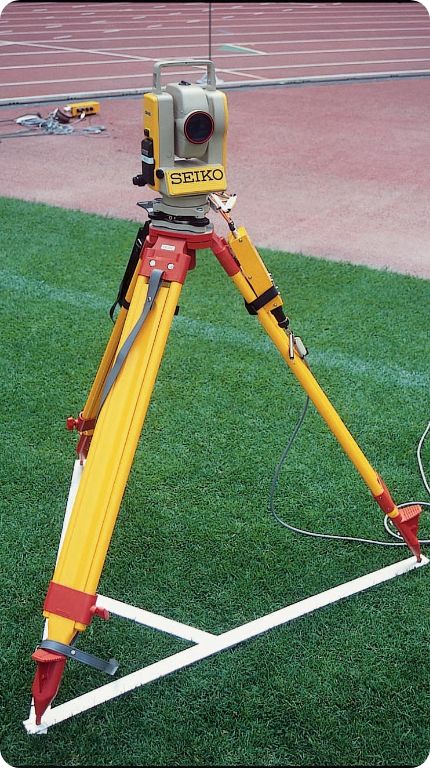


1990s
1991
-
Slit Video, Ultrasonic Anemometer
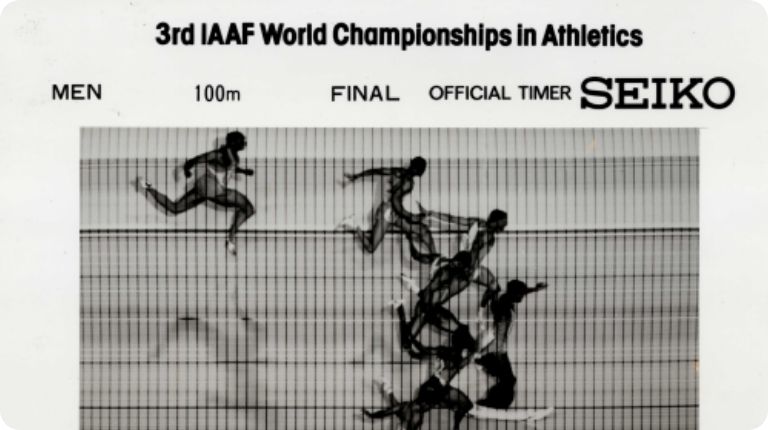
1992
-
Barcelona Olympics
Official timer for the Summer Olympics once again after 28 years
See details
1992 Barcelona Olympics
Official timer for the Summer Olympics once again after 28 years
Having acquired much experience and a strong track record from providing support for timing at various international sporting events, for the first time in 28 years since the 1964 Tokyo Olympics, Seiko again became the official timer for the Summer Olympics. For these Olympics, Seiko introduced starting blocks with built-in speakers and a comprehensive swimming measurement system, and also created a comprehensive sports management system enabling comprehensive online management of measurement results and aggregate results and instant relaying of results to spectators and viewers, thereby contributing to the success of the Games.
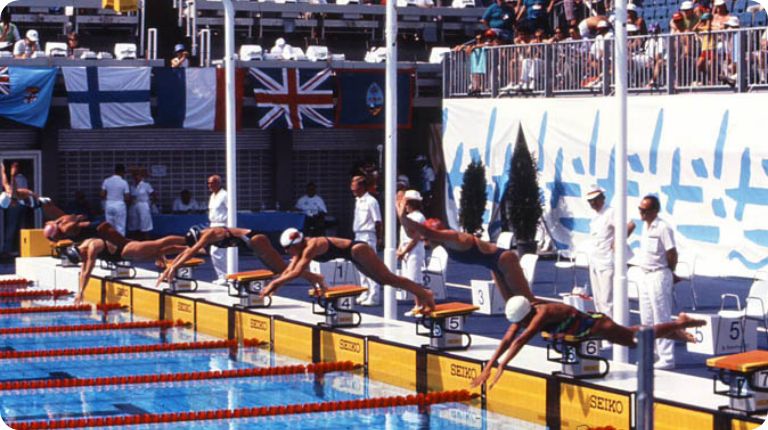
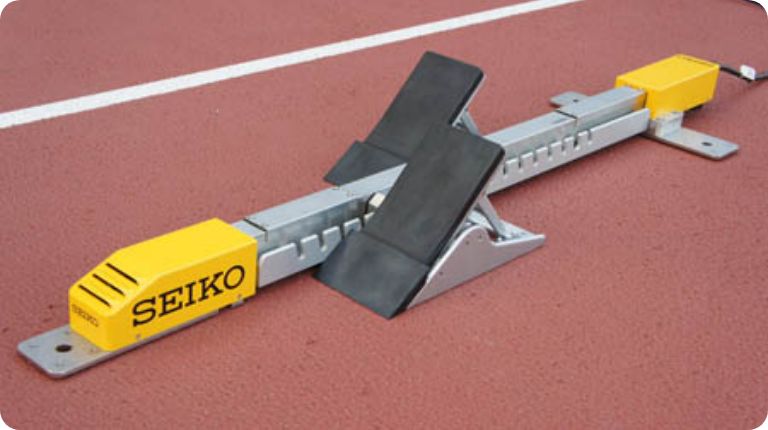
Starting blocks with built-in speakers
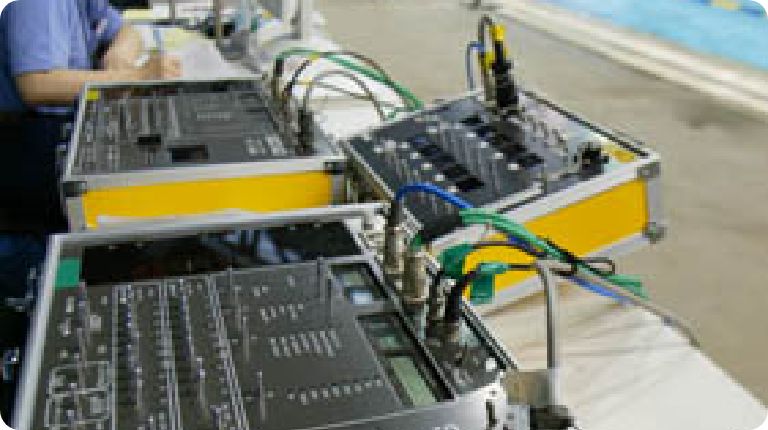
Comprehensive swimming measurement system
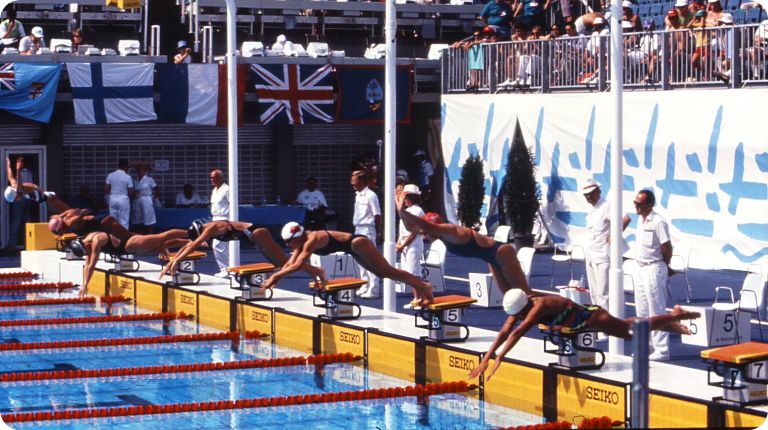
1994
-
Lillehammer Olympics
Official timer for the Winter Olympics once again after 22 years
See details
1994 Lillehammer Olympics
Official timer for the Winter Olympics once again after 22 years
22 years after the Sapporo Olympics, Seiko once again acted as official timer of the Winter Olympics.
For the Barcelona Olympics, as well as further advancing our comprehensive sports management system, we developed a lot of new systems, such as a timer with a dedicated control panel for easy and reliable operation, thereby contributing to the success of the Games. Japan won 5 medals, including gold in the Nordic combined and silver in the ski jump.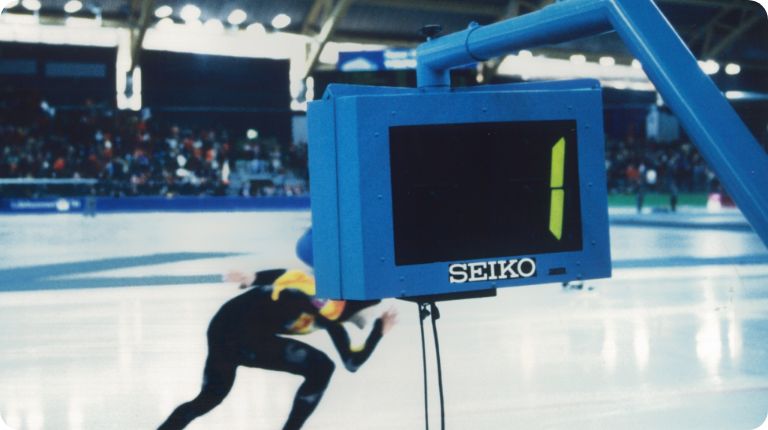
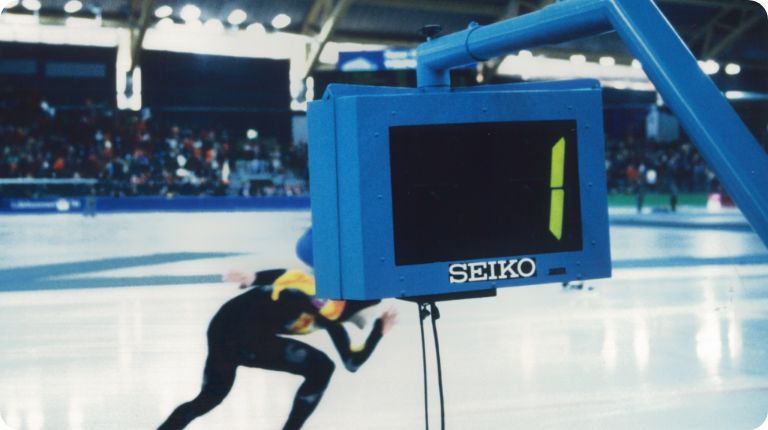
1997
-
World Championships in Athens
Promoting implementation of new systems for athletics events
See details
1997 World Championships in Athens
Promoting implementation of new systems for athletics events
Promoting the implementation of new systems for athletics events, in 1994 Seiko introduced a new false start detection system with even greater accuracy for sprinting events. Then, in 1997, Seiko introduced a color slit video system for the IAAF World Championships held in Athens, helping to raise the accuracy of adjudication.
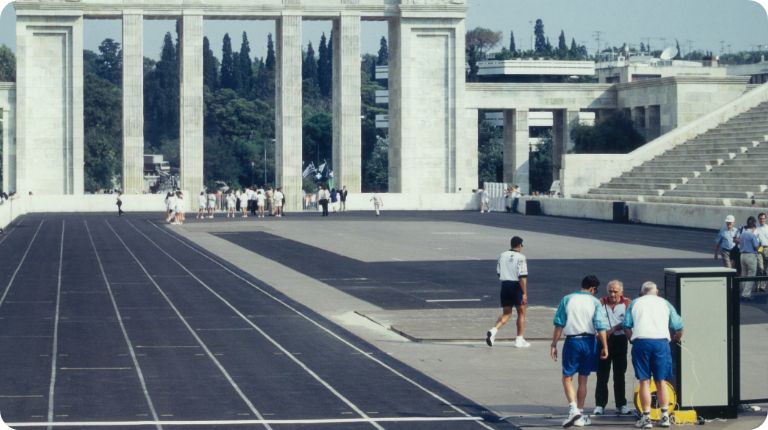
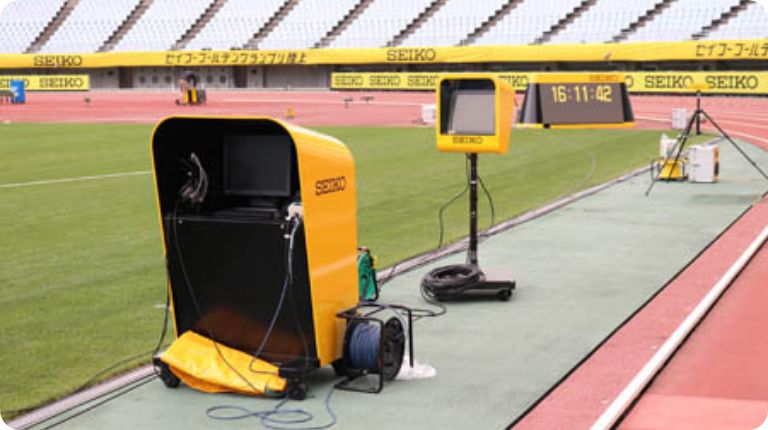
New false start detection system
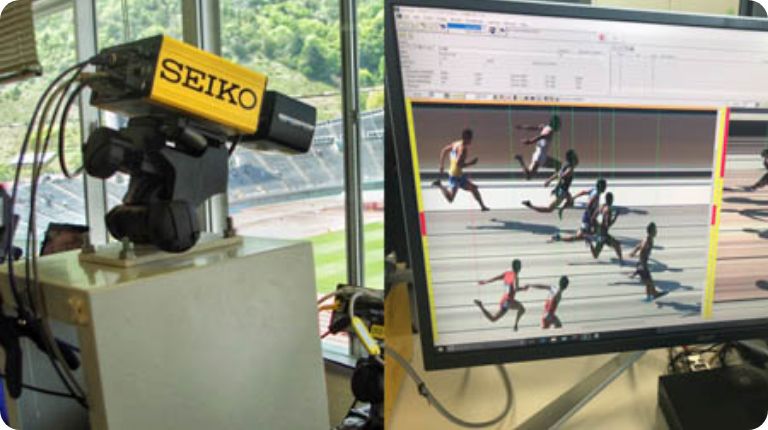
Color slit video
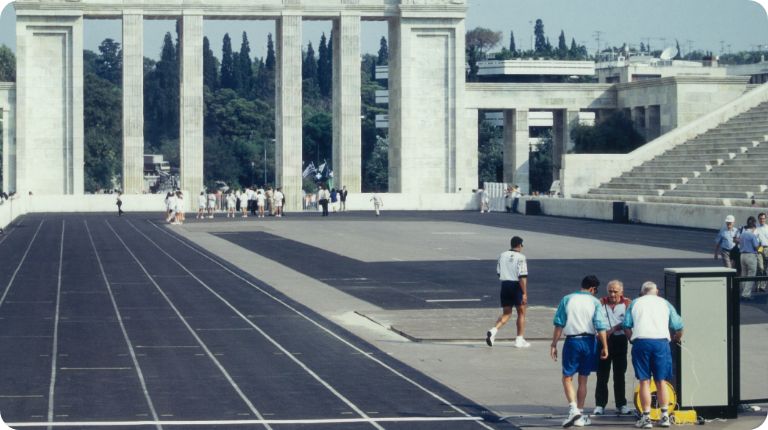
-
Pan Pacific Swimming Championships
Promoting implementation of new systems for swimming events
See details
1997 Pan Pacific Swimming Championships
Promoting implementation of new systems for swimming events
Starting with the 1997 Pan Pacific Swimming Championships, Seiko has also been in charge of timing for the 2001 FINA World Aquatics Championships and the 2002 and 2018 Pan Pacific Swimming Championships. Since 2003, Seiko has had an official timing partnership with the Japan Swimming Federation.
Through the development of new systems such as an underwater high-speed video system (1997), an underwater lap counter system (2002), and a new starting block (2010), Seiko has contributed to major competitions for top swimmers.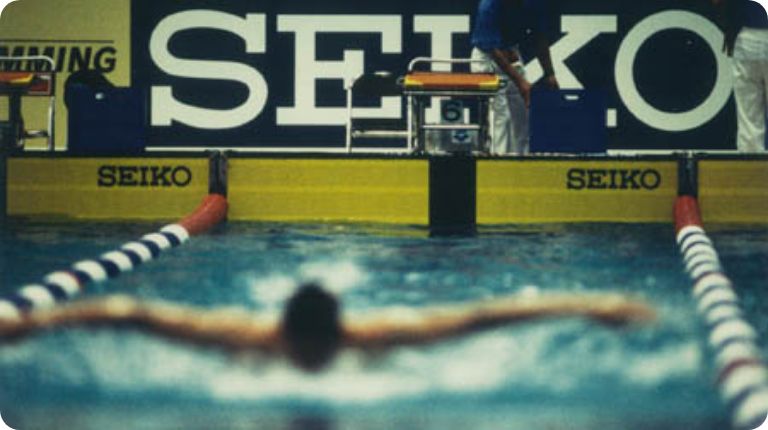
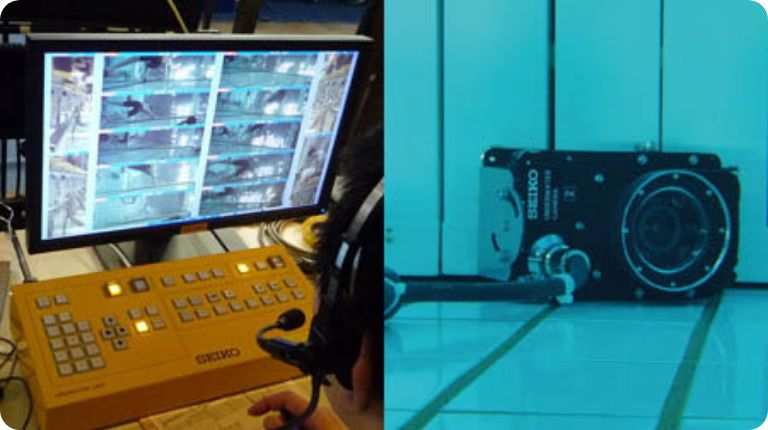
Underwater high-speed video system
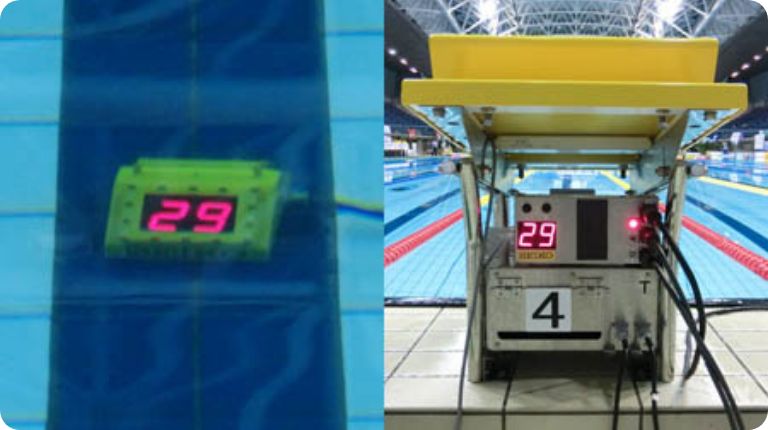
Underwater lap counter system
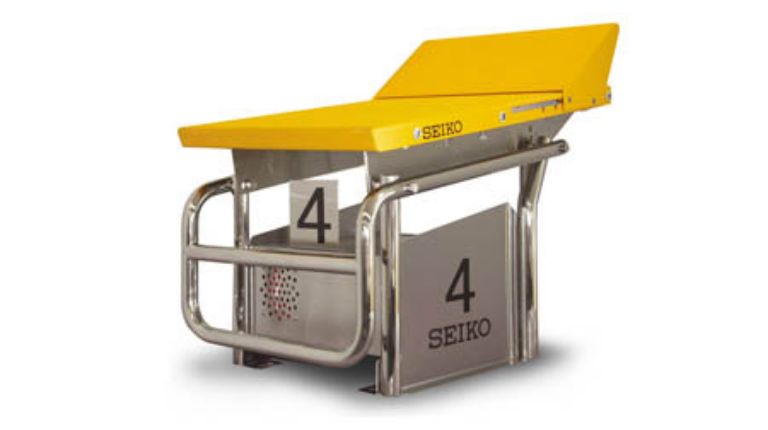
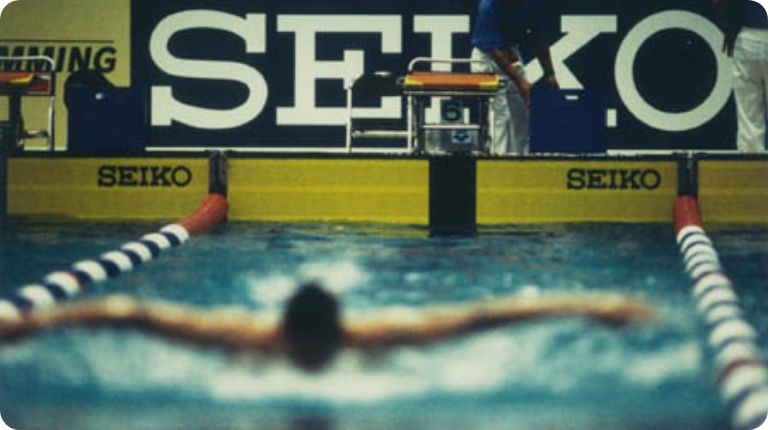
1998
-
Nagano Olympics
Official timer once again for a Japanese Olympics after 26 years
See details
1998 Nagano Olympics
Official timer once again for a Japanese Olympics after 26 years
Twenty-six years after the Sapporo Olympics, Seiko once again acted as official timer for a Japanese Winter Olympics.
For these Olympics, the challenge undertaken was not just to achieve accurate measurements, but to also see how well measurement data could be shown; and for that, Seiko carried out broad implementation of systems utilizing computers, such as a system for measuring jump distance with high-speed cameras. In all, Japan won 10 medals, including gold medals in the individual and team ski jumping events and several medals in speed skating.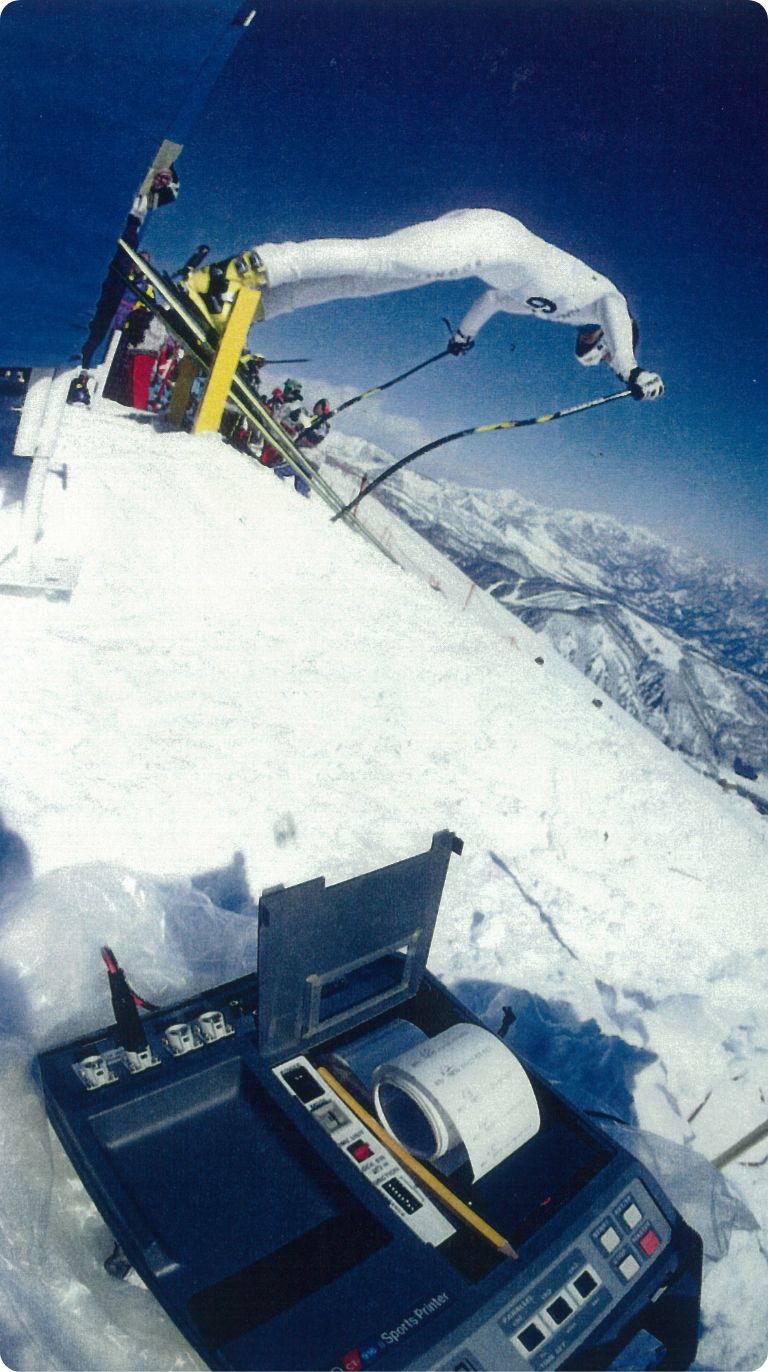
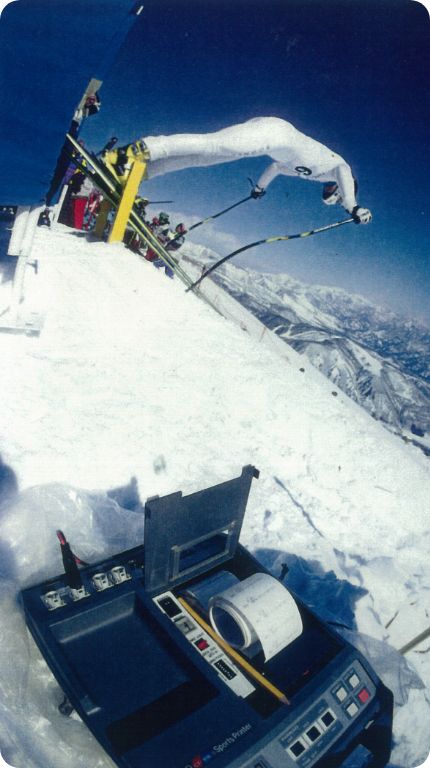
1999
-
Road Race Transponder


2000s
2002
-
Salt Lake City Olympics
Official timer for three consecutive Winter Olympics
See details
2002 Salt Lake City Olympics
Official timer for three consecutive Winter Olympics
Receiving recognition for our performance at the 1994 and 1998 Olympics, we became the official timer for the third consecutive Winter Olympics. We implemented the latest technology, such as the use of wireless transponders, for the first time at any Olympics, to instantly present the time elapsed for each athlete in the cross-country skiing and biathlon events. The slit video system showed two athletes tied for second place in the men's super-G slalom, so both were awarded silver medals.
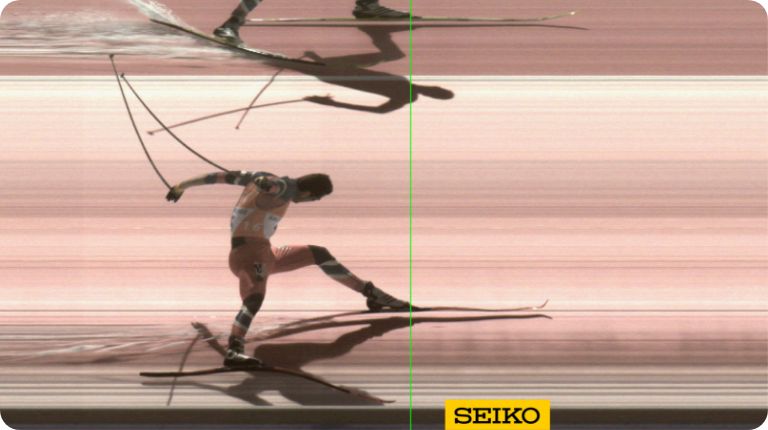
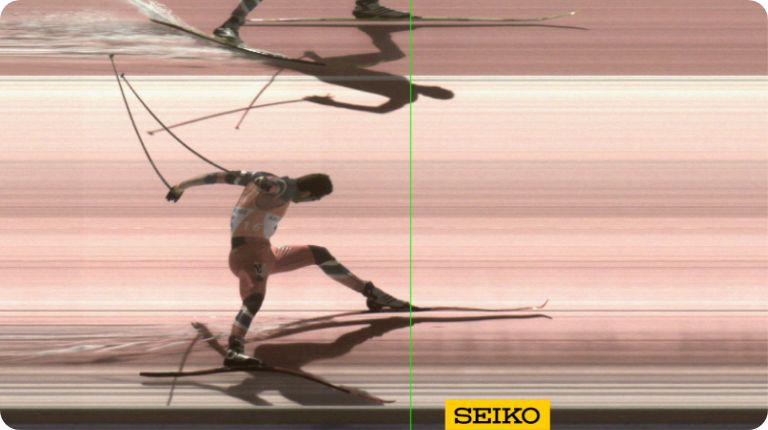
2003
-
New Model Anemometer
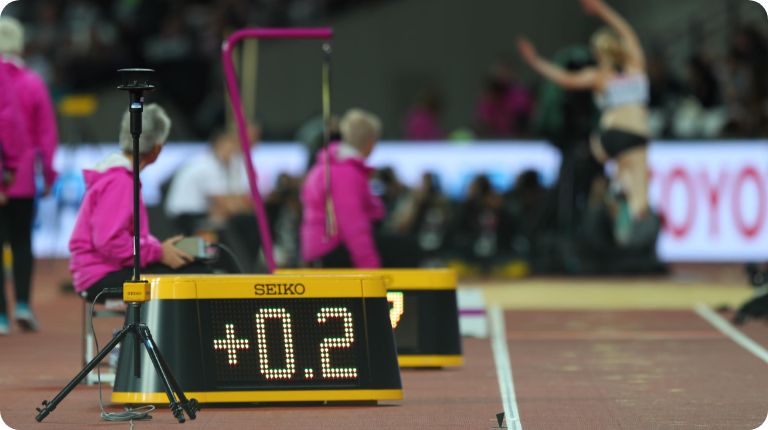
2007
-
Tokyo Marathon
Official timer since the 1st Tokyo Marathon
See details
2007 Tokyo Marathon
Official timer since the 1st Tokyo Marathon
Seiko has been supporting both elite runners and city runners alike as an official timer since the first Tokyo Marathon in 2007. We also take measures to make it a lively event and unite the hearts not only of the runners, but also the many volunteers and spectators, such as by displaying messages in the show window of the Wako specialty store along the course.
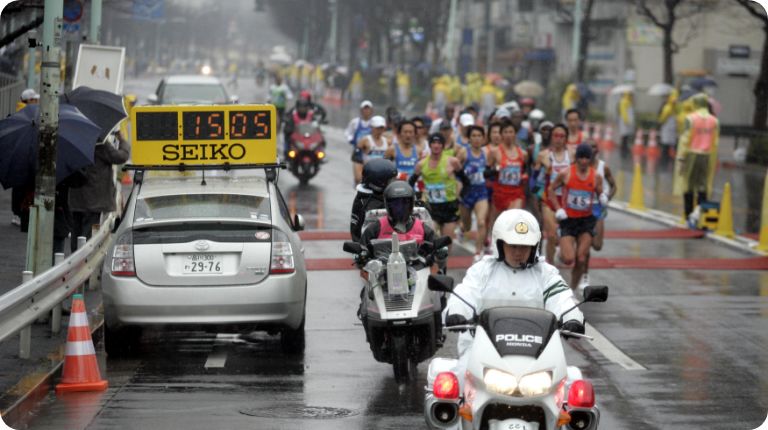
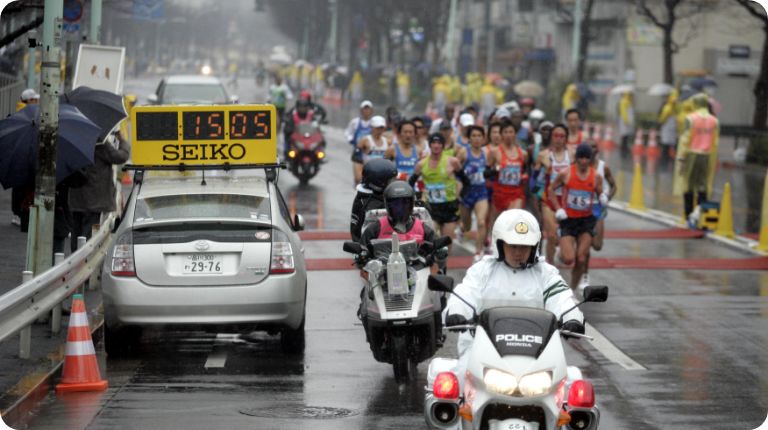
2009
-
World Championships in Berlin
Timing of a new world record in the men's 100m
See details
2009 World Championships in Berlin
Timing of a new world record in the men's 100m
Seiko has measured 30 world records in 36 years of timing at the World Athletics Championships, but the record that remains strongest in people's memories is the 9.58 second record set in the men's 100m at the World Championships in Berlin. This was the first time anyone had run the 100 meters in less than 9.6 seconds, and along with the new world record of 19.19 seconds set in the men's 200m at the same competition, these two records remain unsurpassed.
At this competition, Seiko introduced a new transponder system for track and road events.(as of Jume 2024)
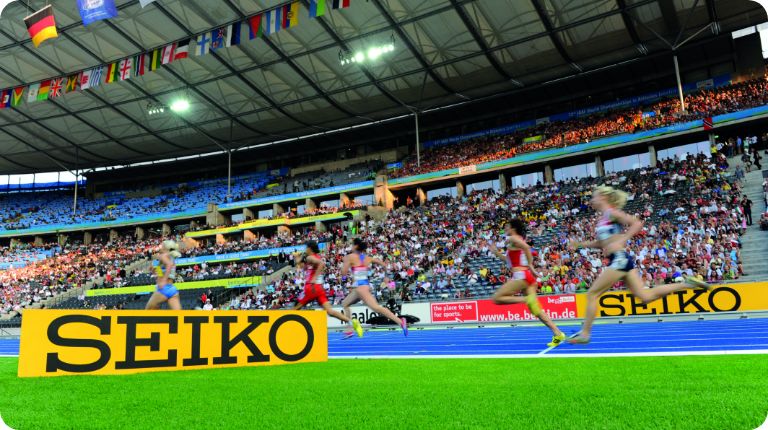
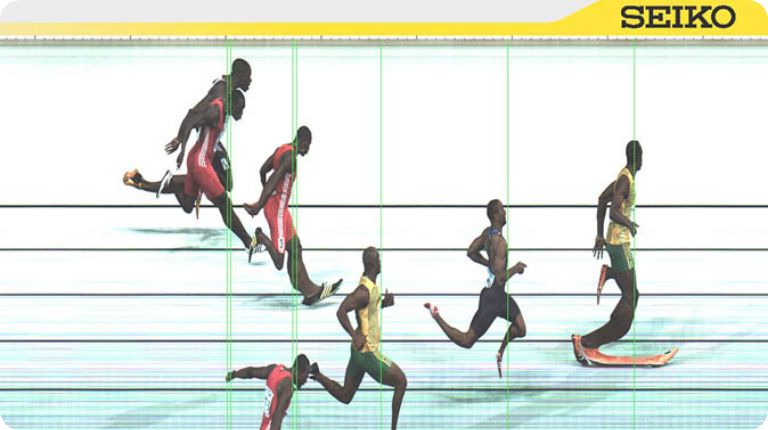
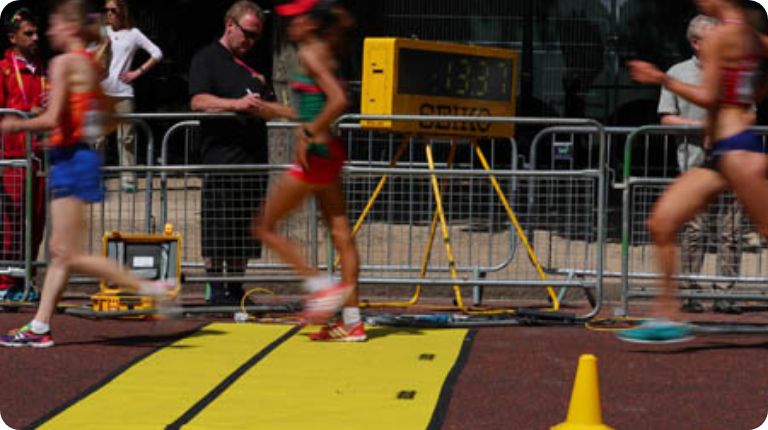
Transponder for track and road events
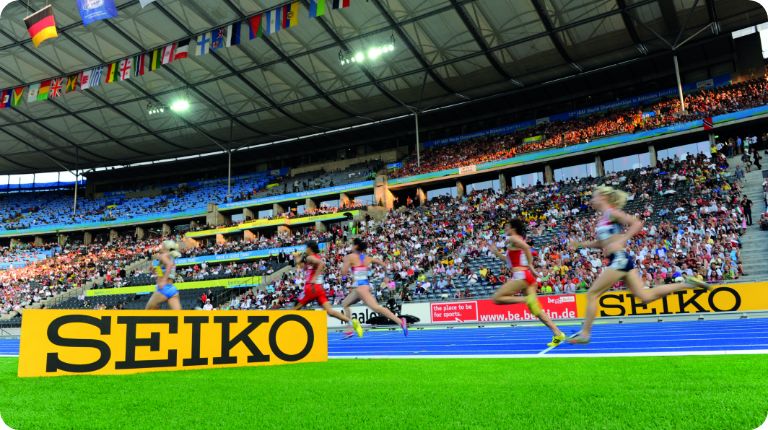


2010s
2011
-
Seiko Golden Grand Prix
A sporting competition bringing together top athletes from around the world
See details
2011 Seiko Golden Grand Prix
A sporting competition bringing together top athletes from around the world
This athletics competition, bearing the name of Seiko, is held as part of the IAAF World Challenge Meetings and is participated in by some of the world's top athletes. It is also designated as a qualifying competition for selection of Japanese athletes to represent the nation in international sporting events such as the World Championships in Athletics and the Summer Olympics.Since its sponsorship of the Super Track and Field Meet, the predecessor to the Golden Grand Prix, Seiko has supported numerous sporting competitions both as sponsor and official timer.
Seiko's video distance measurement (VDM) system, introduced in 2010, provides quicker and more accurate measurement of jumping distances for long jump and triple jump.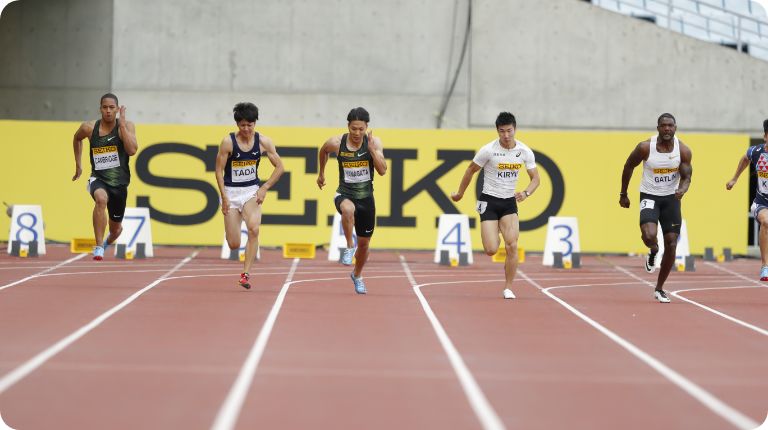
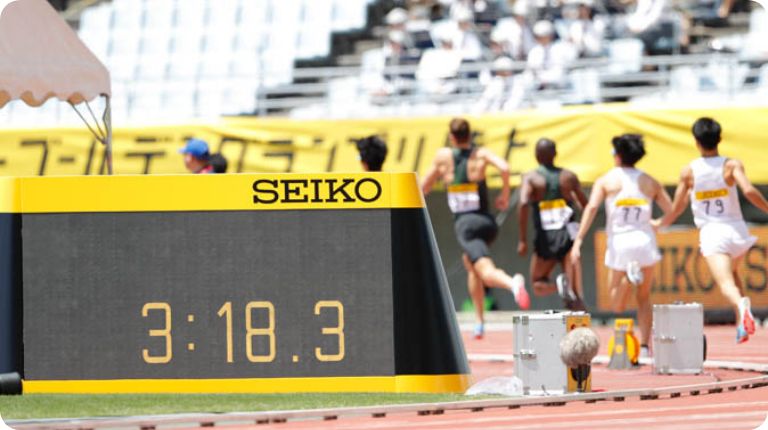
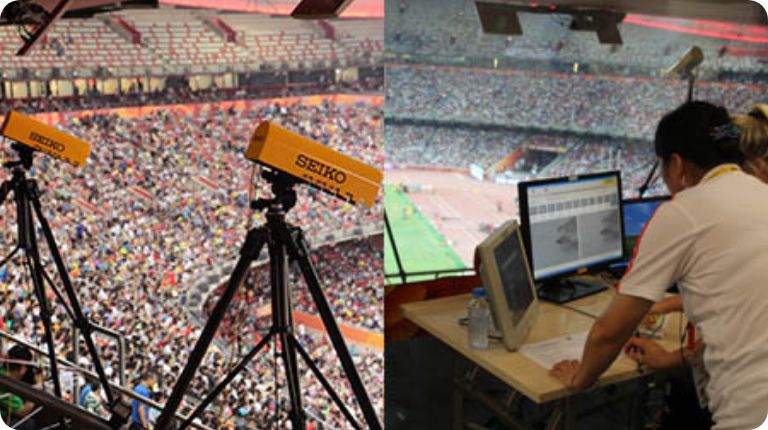
Video distance measurement (VDM) system
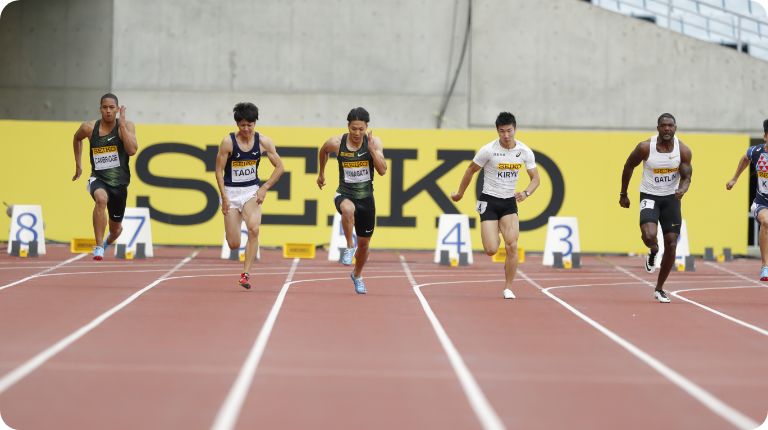
2017
-
World Championships in London
Contributing to the success of the competition through cutting-edge timing systems
See details
2017 World Championships in London
Contributing to the success of the competition through cutting-edge timing systems
This competition was the 15th consecutive World Championships since the 2nd World Championships held in Rome in 1987 for which Seiko provided support, contributing to the success of the competition with various timing systems for track, field, and road events using the latest technology.
In 2013, Seiko had introduced field event boards with highly visible full-color LED displays, and for this competition, Seiko also implemented full-color trackside display boards, providing effective displays for the whole of the competition and contributing to the excitement of the competition.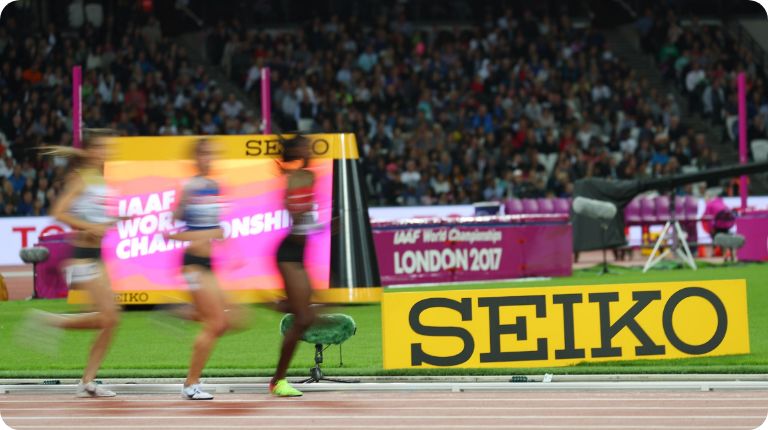
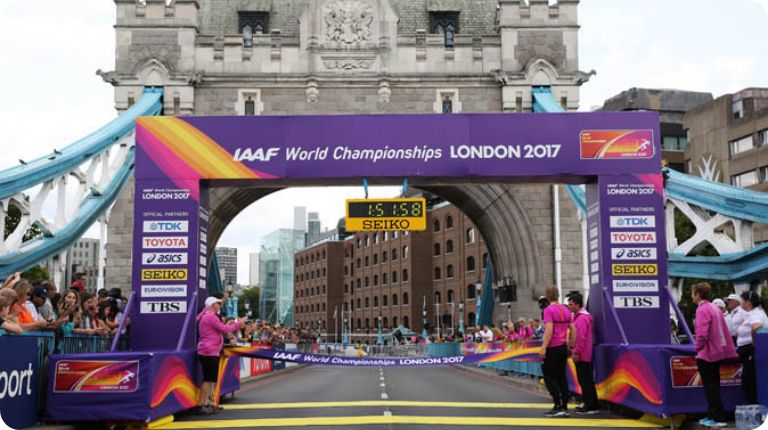
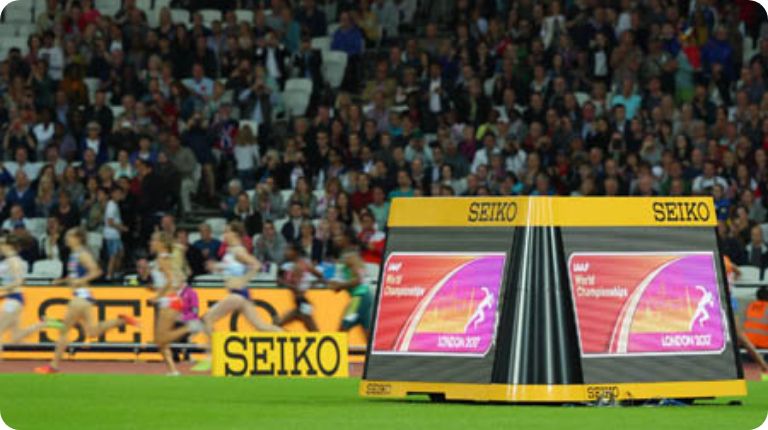
Full-color LED field event board (FEB)
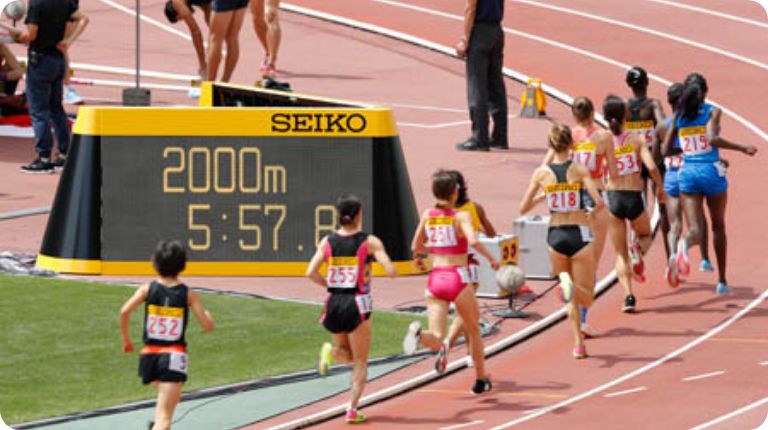
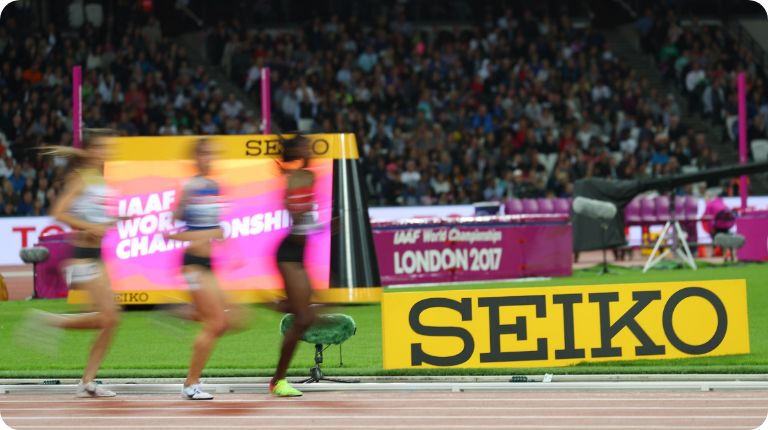
2018
-
Launch of the Team Seiko
Backing athletes' challenges
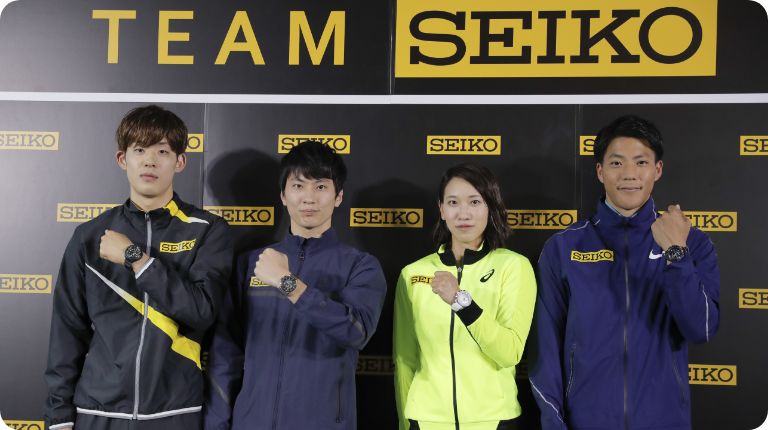
2019
-
World Championships in Doha
Contributing to the success of the first World Championships held in the Middle East with the latest timing systems
See details
2019 World Championships in Doha
Contributing to the success of the first World Championships held in the Middle East with the latest timing systems
This competition was the 16th consecutive World Championships since the second World Championships held in Rome in 1987 for which Seiko provided support, contributing to the success of the competition with various timing systems for track, field, and road events using the latest technology.
Having previously introduced Field Event Boards with highly visible full-color LED displays in 2013 and Trackside Display Boards in 2017, for this competition Seiko newly introduced Sandpit Event Boards for displaying information on long jump and triple jump. We continue to provide convention-defying innovations in the timing of track and field events, thereby contributing to the excitement of the competition.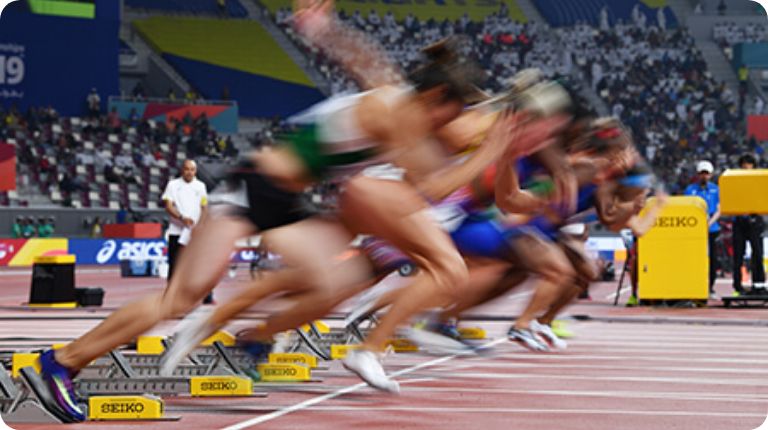
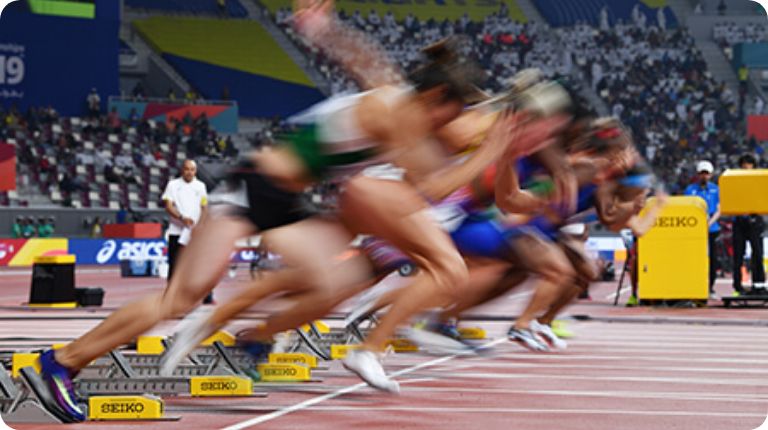


2020s
2022
-
Launch of the New Team Seiko
Delivering Inspiration Through Sports
See details
2022 Launch of the New Team Seiko
With the addition of new athletes, "Team Seiko" has been reborn. "Team Seiko" is a team of athletes who deliver inspiration through sports and embody Seiko's group purpose of "creating a future full of smiles."
About Team Seiko
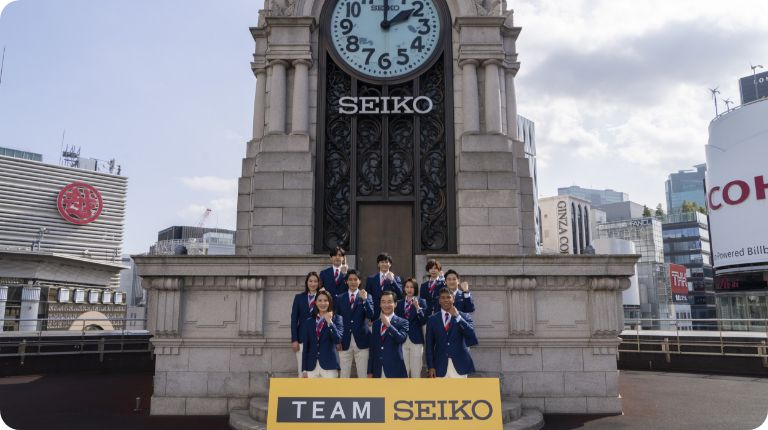
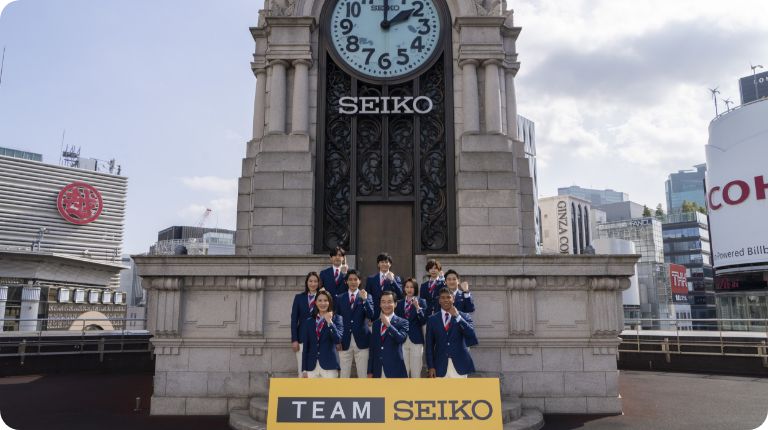
-
World Athletics Championships Oregon 2022
Introduction of the Jump Management System (JMS)
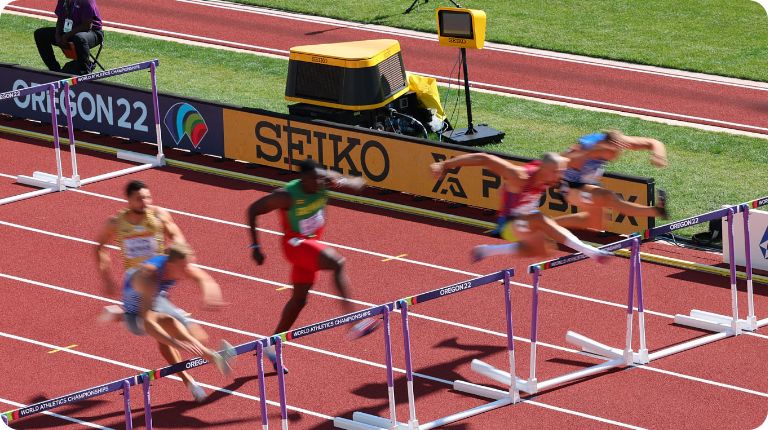
2023
-
World Athletics Championships Budapest 2023
Supporting as an official sponsor of the Japan national team
